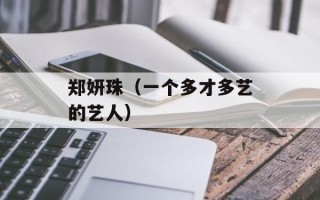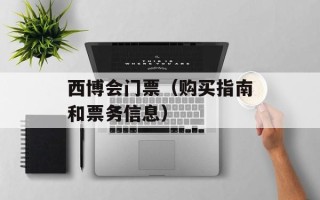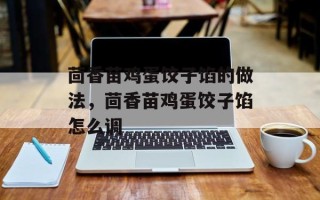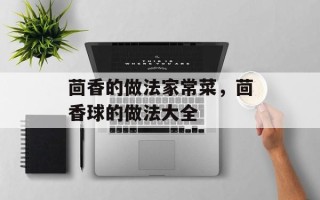英语里面很多短语
每个单词我们都认识
但是连在一起就有认 *** 碍了
比如 eat my hat是什么意思?
可不是"吃了我的帽子"!
If I know as little of life as that, I'd eat my hat and swallow the bucks whole.
如果我对生活了解那么少的话,
我就把帽子和带扣吞下去。
后引申为“我不相信”。
“我不相信” 还可以说成:
I don't buy it
pigs might fly
wear *** ny hats 意思是:
在这里,hat可不是“帽子”
hat= 职位,职责,身份
old hat 不是旧帽子
他的意思是:老旧的;落后的
日常生活中常用的英语分类单词大全日常生活中常用的英语分类单词大全
希望会对大家有所帮助,也希望大家可以好好利用,接下来就让我们一起来学习一下吧。
一、 *** (body)
foot脚 head头 face脸 hair头发 nose鼻子mouth嘴 eye眼睛 ear耳朵 arm手臂 hand手 finger手指leg腿 tail尾巴
二、颜色 (colo *** s)
red红 blue蓝 yellow黄 green绿 white白black黑 pin *** 红 p *** ple紫 orange橙 brown棕
三、学习用品 (school things)
pen钢笔 pencil铅笔 pencil-case铅笔盒 ruler尺子 book书 bag包
comic book漫画书 post card明信片 news *** 报纸schoolbag书包 eraser橡皮 crayon蜡笔 sharpener卷笔刀story-book故事书 notebook笔记本Chinese book语文书 English book英语书 *** th book数学书 *** gazine *** dictionary词典
四、 动物 (ani *** ls)
cat猫 dog狗 pig猪 duck鸭 rabbit兔 horse马elephant大象 ant蚂蚁 fish鱼 bird鸟 eagle鹰 be *** er海狸snake蛇 mouse老鼠 squirrel松鼠 kangaroo袋鼠 monkey猴 panda熊猫bear熊 lion狮子 tiger老虎 fox狐狸 zebra斑马 deer鹿 giraffe长颈鹿 goose鹅hen母鸡 t *** key火鸡 lamb小羊 sheep绵羊 goat山羊 cow奶牛 donkey驴 squid鱿鱼lobster龙虾 shark鲨鱼 seal海豹 sperm whale抹香鲸 killer whale虎鲸
五、 人物 (people)
friend朋友 boy男孩 girl女孩 mother母亲 father *** sister姐妹 brother兄弟 uncle叔叔;舅舅
*** n男人 wo *** n女人 Mr.先生 Miss *** lady女士; mom妈妈 dad爸爸 parents父母grandparents祖父母grand *** /grandmother(外)祖母grandpa/grandfather(外)祖父aunt姑姑 cousin堂(表)兄弟;堂(表)姐妹son儿子 daughter女儿 baby婴儿 kid小孩clas *** ate同学 queen女王 visitor参观者 neighbo *** 邻居principal校长 university student大 *** pen pal笔友 to *** ist旅行者people人物robot机器人
六、 食品、饮料 (food & drink)
rice米饭 bread面包 beef牛肉 milk牛奶 water水 egg蛋fish鱼 tofu豆腐cake蛋糕hot dog热狗 hamb *** ger汉堡包 French fries炸薯条cookie曲奇 biscuit饼干 jam果酱noodles面条meat肉 chicken鸡肉 pork猪肉 mutton羊肉vegetable蔬菜 salad沙拉 soup汤ice冰 ice-cream冰淇淋Coke可乐 juice果汁 tea茶 coffee咖啡breakfast早餐 lunch午餐 dinner/supper晚餐 meal一餐
七、 职业 (jobs)
teacher教师 student *** doctor医生 n *** se *** driver司机 farmer农民singer歌唱家 writer作家 actor男演员 actress女演员 artist画家TV reporter电视台记者 engineer工程师 accountant会计police *** n(男) *** salesperson销售员 cleaner清洁工baseball player棒球运动员 assistant售货员police ***
八、 水果、蔬菜 (fruit & vegetables)
apple苹果 banana香蕉 pear梨 orange橙 watermelon西瓜grape葡萄 eggplant茄子 green beans青豆 to *** to西红柿potato土豆 peach桃 strawberry草莓cucumber黄瓜 onion洋葱 carrot胡萝卜 cabbage卷心菜
九、 衣服 (clothes)
jacket夹克衫 shirt衬衫 T-shirt丅恤衫skirt短裙子 dress连衣裙jeans牛仔裤 pants长裤 socks袜子 shoes鞋子sweater毛衣 coat上衣raincoat雨衣shorts短裤sneakers网球鞋 slippers拖鞋 sandals凉鞋 boots靴子hat(有沿的)帽子 cap便帽 sunglasses太阳镜 tie领带 scarf围巾gloves手套 trousers裤子 cloth布
十、 交通工具 (vehicles)
bike自行车 bus公共汽车 train火车 boat小船 ship轮船 yacht快艇car小汽车 taxi出租车 jeep吉普车 van小货车; plane/airplane飞机 subway / underground 地铁 motor cycle摩托车
十一、杂物 (other things)
window窗户 door门 desk课桌 chair椅子 bed床com *** r计算机 board写字板 fan风扇 light灯teacher's desk讲台 pict *** e图画;照片 wall墙壁 floor地板c *** tain窗帘 trash bin垃圾箱 closet壁橱 *** ror镜子 end table床头柜football/soccer *** present礼物 walk *** n随身听 lamp台灯 phone *** sofa沙发 shelf书架 fridge冰箱 table桌子 TV电视 air-conditioner空调key钥匙 lock锁 photo照片 chart图表 plate盘子 knife刀 fork叉 spoon勺子 chopsticks筷子 pot锅 gift礼物 toy玩具 doll洋娃娃ball球 balloon气球 kite风筝 jigsaw puzzle拼图游戏box盒子 umbrella伞 zipper拉链 violin小提琴 yo-yo溜溜球nest鸟窝 hole洞 tube管子 toothbrush牙刷 menu菜单 e-card电子卡片 e- *** il电子邮件 traffic light交通灯 money钱 medicine ***
十二、地点 (locations)
home家 room房间 bedroom卧室 bathroom卫生间 living room起居室kitchen厨房 classroom教室 school学校 park公园 library图书馆post office邮局 police office *** 局 hospital医院 cine *** *** 院bookstore书店 farm农场 zoo动物园 garden花园 study书房
playground *** 场 can *** 食堂 teacher's office教师办公室 library图书馆 *** m体育馆 washroom卫生间 art room绘画教室 com *** r room计算机教室 music room音乐教室 TV room电视机房 flat公寓 company公司 factory工厂fruit stand水果摊 pet shop宠物商店 nat *** e park自然公园 theme park主题公园science museum科学博物馆 the Great Wall长城 super *** rket超市 bank银行country国家 village乡村 city城市 hometown家乡bus stop公交车站
十三、课程 (classes)
sports体育运动 science科学 Moral Education思想品德课Social Stu *** s社会Chinese语文 *** th数学 PE体育课 English英语课
十四、气象 (weather)
cold寒冷的 warm温暖的 cool凉爽的 snowy下雪的 sunny晴朗的
hot炎热的 rainy下雨的 windy有风的 cloudy多云的 weather report天气预报rain雨 cloud云 sun太阳 mountain山 sky天空 rainbow彩虹 wind风 air空气moon月亮
十五、国家、城市 (countries & cities)
China/PRC中国 America/USA美国 UK联合王国 England英国
Canada/CAN加拿大 Australia澳大利亚 New York纽约 London伦敦Sydney悉尼 Moscow莫斯科 Cairo开罗
十六、景物 (nat *** e)
river河流 lake湖泊 stream河溪 forest森林 path小道 road公路
house房子 bridge桥 building建筑物
十七、植物 (plants)
flower花 grass草 tree树 seed *** sprout苗 plant植物 rose玫瑰 leaf叶子
十八、星期 (week)
Monday星期一 Tuesday星期二 Wednesday星期三 Th *** sday星期四Friday星期五 Sat *** day星期六 Sunday星期天 weekend周末
十九、月份 (months)
Jan. (January)一月 Feb.(February)二月 Mar.(March)三月 April四月May五月 June六月 July七月 Aug.(August)八月 Sept.(September)九月Oct.(October)十月 Nov.(November)十一月 Dec.(December)十二月
二十、季节 (seasons)
spring春 summer夏 fall/autumn秋 winter冬
二十一、方位 (directions)
south南 north北 east东 west西 left 左边 right右边 转载自微信公号:hzenglish.
二十二、患病 (illness)
h *** e a f *** r发烧 h *** t疼痛 h *** e a cold感冒 h *** e a toothache ***
h *** e a headache头疼 h *** e a sore throat喉咙疼
二十三、数词 (numbers)
1 one 2 two 3 three 4 fo *** 5 five 6 six 7 s *** n 8 eight 9 nine 10 ten
二十四、形容词 (adj.)
big大的 *** all小的 long长的 tall高的 short短的;矮的 young年轻的old旧的;老的 strong健壮的 thin瘦的 active积极活跃的 quiet安静的nice好看的 kind和蔼亲切的 strict严格的 *** art聪明的 funny滑稽可笑的tasty好吃的 sweet甜的 salty咸的 so *** 酸的 fresh新鲜的 f *** o *** ite最喜爱的clean干净的 tired疲劳的 excited兴奋的 angry生气的 happy高兴的bored无聊的 sad忧愁的 taller更高的 shorter更矮的 stronger更强壮的 older年龄更大的 younger更年轻的 bigger更大的 he *** ier更重的 longer更长的thinner更瘦的 *** aller更小的 good好的 fine好的 great很好的 he *** y 重的new新的 fat胖的 happy快乐的 right对的 *** gry饥饿的 cute逗人喜爱的little小的 lovely可爱的 beautiful漂亮的 colo *** ful色彩鲜艳的 pretty漂亮的cheap便宜的 expensive昂贵的 juicy多汁的 tender嫩的 healthy健康的ill有病的 *** ful有帮助的 high高的 easy简单的 proud骄傲的 sick有病的better更好的 higher更高的
二十五、介词 (prep.)
in在……里 on在……上;在……时候 under在……下面 near在……的旁边 behind在……后边 next to与……相邻 over在……上面 in front of在……前面
二十六、代词 (pron.)
I我 we我们 you你;你们 he他 she她 it它 they他(她,它)们 my我的 o *** 我们的 yo *** 你的;你们的 his他的 her她的
二十七、动词 (v.)
play(.ed)玩;踢 swim(swam)游泳 skate滑冰 fly(flew)飞 jump跳 walk走run(run)跑 climb爬 fight(fought)打架 swing(swung)荡 eat(ate)吃sleep(slept)睡觉 like像,喜欢 h *** e(had)有;吃 t *** n转弯 buy(bought)买take(took)买;带 live居住 teach(taught)教 go(went)去 study(stu *** d)学习learn学习 sing(sang)唱歌 dance跳舞 row划 do(did)做 do homework做作业do housework做家务 watch TV看电视 read(read) books读书cook the meals做饭 water the flowers浇花 sweep(swept) the floor扫地clean the bedroom打扫卧室 *** ke( *** de) the bed铺床 set(set) the table摆饭桌 wash the clothes洗衣服 do the dishes洗碗碟 use a com *** r使用计算机
do morning exercises晨练;做广播 *** eat breakfast吃早饭 eat dinner吃晚饭go to school上学 h *** e English class上英语课 play sports进行体育运动get(got)up起床 climb mountains爬山 go shopping买东西play the piano弹钢琴 visit grandparents看望(外)祖父母 go hiking去远足fly kites放风筝 *** ke a snow *** n堆雪人 plant trees种树draw(drew) pict *** es画画 cook dinner做饭 read a book看书answer the phone接 *** listen to music听音乐 clean the room打扫房间write(wrote) a letter写信 write an e- *** il写电子邮件 drink(drank) water喝水take pict *** es照相 watch insects观察昆虫 pick up le *** es采摘树叶meet(met)见面 welcome欢迎 thank谢谢 love爱 work工作 drink(drank)喝play com *** r games玩电脑游戏 play chess下棋 empty the trash倒垃圾do an experiment做实验 catch butterflies捉蝴蝶 count insects数昆虫collect insects收集昆虫 collect le *** es收集树叶 write a report写报告play chess下棋 h *** e a picnic举行野餐 get to到达 ride(rode) a bike骑自行车 play the violin拉小提琴 *** ke kites *** 风筝 collect stamps集邮put away the clothes收拾衣服 get off下车 take a trip去旅行read a *** gazine阅读 *** go to the cine *** 去看 *** go straight向前直走taste尝 *** ell闻 feed(fed)喂养 shear剪 milk挤奶 look看 guess猜 *** 帮助pass传递 show展示 use使用 clean打扫 open打开 close关上 put放 paint绘画 tell(told)告诉 kick踢 bounce反弹 ride(rode)骑 stop(stopped)停 wait等find(found)寻找到 drive(drove)驾驶 fold折 send(sent)寄 wash洗 shine照耀become变成 feel(felt)感觉到 think(thought)思考 meet(met)遇见 fall(fell)落下le *** e(left)离开 wake(woke) up醒来 put on穿上 take off脱掉 hang up挂起wear(wore)穿 go home回家 go to bed *** 睡觉
二十八、音乐流派:
Jazz: 爵士,包括有cool jazz, bebop, acid jazz, swing, fushion等。 Miles D *** is, Ella Fitzgerald, Chet Baker。Acid jazz(酸爵士,把R&B的元素融入jazz里)。
Blues: 蓝调,19世纪发源于Mississippi的Delta地区。除了Delta地区的蓝调外,还有Chicago地区的蓝调。Joe Lee Hooker, Muddy Waters, Blind Willie Mctell, B.B.King。
Folk: 民谣。Boy Dylan。
Pop: 流行音乐。Britpop是英伦流行音乐,the Beatles, Placebo, Oasis。
Country:乡村音乐,John Denver, Garth Brooks。
Classic Rock:主流摇滚。the Rolling Stones,Eagles,Rod Steward,the Beatles。包括有pomp rock/glam rock(华丽摇滚 D *** id Bowie, Queens)。acid rock / psychedelic( *** 摇滚 Pink Floyd)。
Rock: folk rock(民谣摇滚Simon&Garfunkel),progressive rock(前卫摇滚 类似于acid rock, Genesis),jazz-rock fusion(爵士摇滚Chicago),pop rock(流行摇滚 *** tchbox twenty),punk rock(朋克摇滚 Red Hot Chili Peppers),blues rock(蓝调摇滚the Who)
Alternative Rock: 另类摇滚,包括punk(朋克 Green Day, Offspring, Sex Pistols), *** (硬核 The Clash, Sonic Youth),Goth(哥特摇滚 the C *** e, Bauhaus),industrial(工业摇滚 Nine Inch Nails), grunge(油渍摇滚 Nirvana, Pearl Jam),new w *** e(新浪潮 Inxs, Tears for Fears),post-punk(后朋克 Joy Division, R.E.M., UB40),Brit Rock(英伦摇滚 Oasis, Bl *** )。
He *** y Metal: 重金属,Guns&Roses,Led Zeppelin,Metallica,Def Leopard,Van Helen
Hard Rock: 硬摇滚,Bon Jovi,Aero *** ith。
R&B: 节奏蓝调,是rhythm and blues的缩写。属于美国黑人的音乐范畴。Stevie Wonder,Michael Jackson。
Funk: 疯克,可以算作R&B的一种,Prince。
Hip-hop 嬉蹦
Rap: 饶舌乐,MC Hammer(MC就是饶舌者的意思),Dr.Dre,Eminem,Beastie Boys。
Dance & DJ: 跳舞音乐。Disco(the Bee Gees,ABBA), House(浩室,由Disco演化而来,M-People, *** ),Techno(比House节拍快,发源于Detroit,Moby),Gabber(techno的极端形式,节拍为400-500bpm),Trance( *** 舞曲Paul van Dyk), Bigbeat(大节拍 Fatboy Slim, the Chemical Brothers, Prodi *** ),Drum N’ Bass(其前身是jungle,是breakbeat的灵魂,Guy Called Gerald),Trip-hop(氛围嬉蹦,最早被称为Brit-hop, Massive Attack)
Raggae: 雷 *** ,Bob Marley。
Fushion: 指不同种类的音乐曲风的融和。
二十九、肉类及海鲜:
猪肉pork
猪排chop
五花肉 streaky pork/ *** rbled beef
肥肉fatty meat
瘦肉lean meat
前腿fore leg
后腿hind leg
猪蹄pettitoes
脚爪hock & foot
蹄筋sinew
软骨gristle
牛肉beef roast
小牛肉veal
碎牛肉ground beef
牛排steak
牛腿肉silverside
牛腰肉sirloin
羊肉mutton
鹿肉venison
羊排lamb chop
羊腿gigot
鸡腿drumstick
鸭翅膀duck wing
腊肉preserved ham
香肠sausage
鱼圆fishball
虾皮dried *** all shrimps
海蜇jelly fish
蚝oyster
三文鱼/鲑鱼salmon
鲈鱼we *** r
鳝eel
金枪鱼tuna
带鱼hairtail
海参sea cucumber
明虾prawn
虾仁peeled prawns
龙虾lobster
小龙虾crawfish
扇贝/鲜贝scallop
*** abalone
海带kelp蛤clam
蛏子razor clam
虾子shrimp’s egg
鱼子roe
凤尾鱼anchovy
鳕鱼cod
鲳鱼pomfret
青鱼herring
鲭 *** ckerel
淡菜moule
沙丁鱼pilchard/sardine
海螺whelk
海蜇jellyfish
蚌mussel
海扇cockle
比目鱼plaice
海鳗eel
墨鱼cuttlefish
旗鱼swordfish
三十、豆制品:
豆腐tou-fu/bean c *** d
豆腐衣bean sheets
粉丝bean starch noodles
粉皮bean starch sheets
豆腐干丝bean c *** d strips
腐乳pickled bean c *** d
油面筋fried gluten puff
油豆腐fried bean c *** d puff
豆豉fermented black bean
豆酱fermented soybean
百叶beanc *** d sheets
豆腐干dried beanc *** d
冠词——名词的帽子!《 *** 英语语法简译本》章节二作者介绍
大家好!我是关注大家英语学习的陈老师,一个有温度的英语老师!一个诠释语言背后的逻辑,教你用汉语学英语的老师!
从教十余年,看到太多人因为学英语而痛苦不堪,有没有一种 *** 真正能让普通初中 *** 的成年 *** 能学懂这门语言,少走弯路?我认为是有的!
逻辑支持
名词的重要 *** 不言而喻,在英语十大词类(介冠形名代 情副动数连 )中名词跟其它词类到底有什么样的关系是需要了解的。
在汉语中我们不需要去研究词与词之间的关系(语法)是因为我们在 潜意识中会造句(即使说不出为什么),在英语学习中我们必须去搞 清楚。当你搞清楚英语中各类词之间的关系时你会发现你的汉语水平 会因此有很大的提高!英汉互译:主干一致,修饰相反!
由于冠词是限定词中限定数量的一种,限定词是名词出现的标志,结 合“冠”的意思,你可以把冠词看作是名词的“帽子”,是名词身份的象征。
名词短语中的限定词复盘
名词不能以词条出现在句子当中而要以名词短语出现的原因是要把名词交代清楚,交代清楚就必然绕不过限定词,限定名词的数量(可数与不可数)、指代关系(所有格与形容词 *** 物主代词)和顺序(更高级和序数词)。
名词短语中可以出现形容词,形容词是修饰名词的词。我们前言中讲了英语造句的逻辑是修饰成分放在主要成分之后,为什么在名词短语中又可以把形容词放在限定词和中心名词之间呢?其实这个现象跟中文的表达一样,在中文里我们把“一个漂亮的女孩”看作一个整体,它被叫做“偏正短语”。在英语中写成“a beautiful girl”,叫名词短语。
我们来看一下汉语中对偏正短语的描述:偏正短语,由修饰语和中心语组成的短语。偏正短语又叫偏正词组,是由修饰语和中心语组成,结构成分之间有修饰与被修饰关系的短语;动词、名词、形容词与它们前面起修饰作用的成份组成的短语。名词前的修饰成分是定语;定语(状语)和中心语的关系是偏和正的关系;偏正短语包括定中短语与状中短语。定中短语举例:新建的校舍,一张写字桌。壮中短语举例:非常出色,坚决支持,愤怒地说。
汉语的偏正短语中的“定中短语”和英语中的“名词短语”为什么如此相似呢?语言的表达背后逻辑一定是越简单越好,越实用越好!由此,大家想到一个问题没有?英语中动词会有相类似的“壮中短语”吗?我们后面再讨论!
限定词是名词短语的开始,看到限定词就等于看到了名词。冠词是限定词的一种,冠词顾名思义就是给名词带一个帽子,这样一眼就发现这个名词了,这个名词当就是可数名词了!a/an是不定冠词,是one的简化,表一个,叫泛指;the是that/those的简化,表那个/那些,叫特指。
什么时候不能用冠词呢?之一种情况是名词不可数,没有固定单位去数它(有些名词是因为形状不固定如water,air,cake等;有些名词是因为没有必要去数,比如头发hair,有固定的形状,有固定的单位“根”,但我们正常情况下会去数吗?)第二种情况是事物在这个宇宙是独一无二的,没有第二个,就不能用a/an/the去限定了。
冠词概述
不定冠词
不定冠词:泛指一个,一类,一种,一次,一场,一阵,一方面,一部分,又一,再一
A university一所大学 ;a coffee一杯咖啡 ;a he *** y rain一场大雨 ;a long history悠久的历史 ;a great s *** prise一个大惊喜 ;a success一件成功的事
定冠词
定冠词:特指一个,一类,全家,独一无二的事物,西洋乐器,方位,时间,地点
the cat这只猫 ;the wheel轮子 ;the Smiths史密斯一家 ;the dead去世的人 ; the moon 月球 ;the piano钢琴 ;in the east在东方 ;in the morning在早上;the 1930
零冠词
零冠词:不可数的泛指,复数表一类,学科、语言、三餐、棋类、球类,无特定意义的星期、月份、季节、节日,“by+名词”表方式,独一无二的头衔、职务做补语或同位语,名词前已有限定词
air/water空气/水 ;horses马 ;basketball篮球 ;winter冬天;New Year’s Day新年 ;by plane乘飞机(in a car/on the bus) ;his dog他的狗
零冠词
可数名词的复数前不加冠词
I like beautiful flowers.我喜欢漂亮的花。
抽象名词(如honest、bribery)没有具体形状,不能以“一个”来表示。物质名词(如water、food)虽然是具体的东西,可是形状不固定,也不能以“一个”来表示。这些不能以a/an来引导的词就可以把限定词省略。抽象名词和物质名词是不可数的,没有单复数,不用限定词。
Honest is not necessarily the best policy.诚实不一定是上策。
Fresh water is a precious reso *** ce in Saudi Arabia.淡水是沙特 *** 的珍贵资源。
人名(如Li Ming)、地名(如Mianyang)等都是专有名词。因为它所 *** 的对象只有一个,也不适合加a/an,所以可以不用限定词。为什么只有一个的名词不能加a/an呢?因为如果加了,言外之意就是还存在第二个!
There are five Sundays this month.这个月有五个星期天。一个月可能有四到五个星期天,在这里Sunday不是专有名词。
I h *** e an appointment on Sunday.我这周星期天有约。一周只有一个星期天,在这里Sunday是专有名词。
放在补语位置的专有名词最难判断。补语和主语(或宾语)之间有等同的关系,如果主语(或宾语)是专有名词(例如人名)的话,那么他的补语既然和它同等,便也会被当作是专有名词来使用,条件是在补语位置上的名词也必须具有“唯一”的 *** 质。
Mr. Li was president of the high school.李先生曾是这所高中的校长。
We elected him o *** monitor.我们选了他当班长。
定冠词
the可视为that或those的弱化形式。而that或those是指示代词(形容词),有明确的指示功能。所以定冠词the也可以用同样的角度来了解:凡是上下文中有明指或暗示时,也就是有“那个”的指示功能时,便要用定冠词the。
I need a book to read on my trip.我在旅途中需要带本书读。
I h *** e finished the book you lent me.我已把你借给我的书读完了。
Modern history is my f *** orite subject.现代史是我最喜欢的科目。
The history of recent China is a sorry record.中国近代史是部伤心史。
He should be home; I saw a light in his house.他应该在家;我看见他家灯亮了。
T *** n off the portal light.把门口的灯关掉。
如果上下文没有明确指出来,但有清楚的暗示,仍然要用定冠词the。
I’m going to the office now.现在我要去办公室。
Do you mind if I open the window?我可以把这扇窗户打开吗?
Do you mind if I open a window?我可以打开一扇窗户吗?
专有名词和定冠词是有冲突、且不能并存的。如果加了the,就表示这个东西有两个以上,也就不是专有名词了。
This is not the John Smith I know.这不是我认识的约翰史密斯。
(暗示还有另外一个约翰史密斯存在,或是他有另外一面。)
This is a photography show of the Mianyang 50 years ago.
这是表现50年前的绵阳的摄影展。(“50年前那个绵阳”这句话暗示和今日绵阳不同了,有两个绵阳。这时绵阳就变成了普通名词。)
名词短语的省略
“the+形容词”表一类,其实不是例外,而是中心名词被省略,你看到的是形容词位置上的修饰语 ? the rich(people)(rich是形容词,中心名词people是普通名词,要用定冠词the,people可省略。)
the Pacific (Ocean) (Pacific是形容词,中心名词Ocean是普通名词,要用定冠词the,Ocean可省略。)
the Atlantic (Ocean) (同上)
the Indian Ocean ( Ocean 不能省略,省略后的the Indian 可能会被误解为“这名印第安人”)
the Mediterranean (Sea)(同上)
the Dead Sea ( Sea 不能省略,省略后的the dead可能会被误解为“死人”the dead people)
the Alp Mountains---the Alps(Mountains普通名词,可省略,以形容词位置取之,并把复数-s向前移。)
the Mississippi (River) (中心名词river是普通名词,可省略。省略后看到的 the Mississippi,也就是所谓的专有名词,其实是形容词位置的修饰语。)
the Titanic (Ship) (同上)the Hilton (Hotel) (同上)
the United States of America(States 是普通名词,可加冠词; of后面的America 是专有名词,不能加。)
the United Nations(Nations 是普通名词,可加冠词)
定冠词the用于的搭配
“By + the +表示计量单位的名词”表示“以……计算,按照……计算。
He pays the rent by the month.他按月付房租。
“the + 比较级,the + 比较级”结构,表示“越……,越……”。
The more careful you are, the fewer mistakes you’ll *** ke.你越小心,出的错就越少。
在“动词+ *** +介词+the+身体部位”结构中要用the(而不用物主代词)。
She hit him on the ear.她打了他一记耳光。
“in + the + 年份的复数形式或所有格”表示“在……世纪……年代”。
in the 1860s/1860’s 在19世纪
有无冠词对比
有无冠词意义不同的情况 | |||
无冠词 | 有冠词 | ||
in office | 执政,当权 | in the office | 在办公室里 |
in sight of | 能看见 | in the sight of… | 据……的见解 |
out of question | 毫无疑问 | out of the question | 根本不可能 |
go to sea | 海员出海 | go to the sea | 向海走去 |
sit at table | 吃饭 | sit at the table | 坐在桌子旁 |
in place of | 代替 | in the place of | 在……地方 |
on earth | 究竟 | on the earth | 在地球上 |
by sea | 乘船 | by the sea | 在海边 |
go to bed | 就寝, *** 睡觉 | go to the bed | 向床走去 |
go to school | *** 去上学 | go to the school | 到学校去 (不一定是上学) |
in hospital | 因病住院 | in the hospital | 在医院里 (不一定是病人) |
in charge of | 充电 | in the charge of…… | 由……负责 (由物作主语) |
零冠词常考短语
at work 在上班 at last 最终 in fact 事实上 in danger在危险中
in trouble 处在麻烦中 with pleas *** e 高兴地 lose weight 减肥
take care of 照顾 day after day 日复一日 pay attention to注意
after school 放学后 by hand 手工做 for example 例如
in time 及时 on foot 步行 catch fire 着火
set fire to 放火 take part in 参加 do harm to 对……有害
keep in mind 牢记 at first 起初 by chance 碰巧
le *** e word留言 in fear 恐惧地 catch sight of 无意中看见
in town 在城里 hand in hand手拉手 all day and all night整天整夜
face to face面对面 step by step 逐渐地 one by one 一个接一个
in s *** prise 惊讶地 arm in arm 摩肩接踵 hand in hand手拉手
little by little 渐渐地 on show 展览 on time 及时
不定冠词常考短语
a waste of… 浪费…… play a visit to 参观 h *** e a cold 得了感冒
h *** e a holiday 度假 get a lift/ride 搭便车 as a result 因此
as a rule 通常,照例 in a h *** ry 匆忙的 in a word 总之
once in a while 偶尔 once upon a time 从前 lend *** a hand 帮助某人
h *** e/take a rest 休息一下 h *** e a good time 玩得高兴 *** ke a living 谋生
go on a *** t 节食 as a *** tter of fact 事实上 *** ke a choice 做出决定
in a sense 在某种意义上 in a moment 立刻 for a while 暂时
all of a sudden突然 h *** e a gift for 有……天赋 h *** e a word with 与……有谈话
at a distance一段距离 h *** e a population of 有……人口 a collection of 一批……
h *** e a history of 有……的历史 h *** e a knowledge of 知道
h *** e an understanding of了解 after a while 一会儿后
at a loss 困惑,不知所措 a *** tter of ……的问题
定冠词常考短语
at the moment 此刻,目前 by the way 顺便说一下 on the way 在路上
on the whole 总的来说 in the end 最后 on the other hand 另一方面
*** ke the most/best of 充分利用 to tell the truth 说实话 at the same time 同时
at the top of 更高的,最顶端 on the contrary相反 in the middle of 在……中间
go to the cine *** /theater去看 *** /戏剧 in the countryside 在乡下
in the habit of 习惯于 in the playground 在 *** 场
go to the doctor’s 去看医生 the other day 前几天 on the spot在现场
on the radio/phone 通过 *** 电波/ *** not in the least 一点也不
for the most part 通常,多半
下回预告
下回我们继续 章节四 限定词之代词的讨论!如果对你有用,记得让更多的人参与学习!我是有温度的英语陈老师!
#头条抄书打卡# 第46天
小学必背英语单词及例句
二年级下 Hh 【化学】氢,元素氢(hydrogen)的符号
hard 坚硬的 This chair is too hard. 这把椅子太硬了。
hat 帽子 Mary has a red hat. 玛丽有一顶红色的帽子。
hill 小山 It's a hill. 这是一座小山。
hospital 医院 This is a hospital. 这是一家医院。
house 房屋 Can you see o *** house? 你能看到我们的房子吗?
homework 家庭作业 Is he doing his homework? 他是在做家庭作业吗?
hop 跳 I like hopping. 我喜欢跳。
h *** ry up 赶快 H *** ry up! Don't be late. 快点!别迟到了。
hide 隐藏 He's hiding under the bed. 他藏在床下。
hide and seek 捉迷藏 Damien and Sam are playing hide and seek. 那敏和萨姆正在玩捉迷藏。
*** 帮助 Can I *** you? 我能帮你做点什么吗?
her 她的 What's her name? 她叫什么名字?
him 他 I am not *** ing him today. 我今天没有帮 *** 活。
here 在这里 What's the weather like here? 这里的天气怎么样?
*** gry 饥饿的 I am *** gry. 我饿了。
bean
英 /bi?n/ 美 /bi?n/ 全球(英国)
n. 豆,菜豆,豆科植物;籽实,豆形 *** ;用于强调丝毫,一点;<旧>脑袋
v. (用某物)击中(某人)头部
pea
英 /pi?/ 美 /pi?/ 全球(美国)
n. 豌豆
peanut
英 /?pi?n?t/ 美 /?pi?n?t/ 全球(美国)
n. 花生
复数 pean
peacock
英 /?pi?k?k/ 美 /?pi?kɑ?k/ 全球(英国)
简明 牛津 新牛津 韦氏 柯林斯 例句 百科
n. 孔雀;雄孔雀;爱虚荣的人
vi. 炫耀;神气活现地走
cock
英 /k?k/ 美 /kɑ?k/
n. 公鸡;雄禽;<英>老兄,伙计;<英>雄龙虾,雄螃蟹,雄鲑鱼;<英,非正式>胡说,废话; *** , *** ;龙头,阀门;(枪的)击铁,撞针;头目
v. 竖起,歪着;扣(或扳)上扳机准备射击;<英,非正式>把……搞糟, *** (~ sth. up);歪戴(帽子);弯曲(臂、腿或关节);(公狗)翘起(一条后腿) *** ;大摇大摆
shock
英 /??k/ 美 /?ɑ?k/ 全球(英国)
n. 令人震惊的事;吃惊,震惊;休克; *** ,触电;减震器;(对经济、传统、生活方式的)冲击,撞击;( *** 、 *** 等引起的)剧烈震动;浓密的头发;愤怒,生气;冲击力 ;(竖放在地里促使谷物更快晒干和成熟的)禾束堆
v. 使震惊,使难以置信;(言语或行为)(使)愤慨,(使)生气;使触电,使遭 *** ;使恐惧(或厌恶);使生理休克;把......堆成禾束堆
adj. 令人震惊的,令 *** 感意外的(尤用于新闻报道);浓密的,蓬乱的
lock
英 /l?k/ 美 /lɑ?k/ 全球(美国)
v. 锁住,把……锁起来;固定,卡住;陷入,卷入(困境、争论、争执等);被紧紧抓住(或抱住);给(计算机资料)加密;过船闸;<文>对视
n. 锁;一缕头发;<文>头发;船闸;(摔跤中的)抱,夹;<英>前轮转向角度(=full lock);(并列争球的)第二排前锋(=lock forward);<美>必定成功的人(或事)((a lock);车锁,制动器;(机器部件等的)锁定;<美>(对某物的)完全控制;<古>枪栓;(计算机资料的)加密;<古>(交通)堵塞
【名】 (Lock)(美)洛克(人名)
mock
英 /m?k/ 美 /mɑ?k/ 全球(英国)
v. 嘲笑,(模仿)嘲弄;使显得徒劳,使显得可笑;(照原尺寸)模仿,仿制 (mock sth. up)
adj. 假装的,假的; *** 的;( *** 、作战等)模拟的,演习的
n. <英>模拟 *** (mocks);<旧>嘲笑对象,笑柄;嘲笑;模仿,仿造(品)
a *** . 虚假地,不诚实地
dock
英 /d?k/ 美 /dɑ?k/ 全球(美国)
n. 码头;船坞;被告席;尾巴的骨肉部分
vt. 使靠码头;剪短
vi. 入船坞
rock
英 /r?k/ 美 /rɑ?k/ 全球(美国)
n. *** ;礁石;(尤指凸出地面的)岩块,大石块;碎石,石子;<非正式>钻石,宝石;摇滚乐;可信赖的人,靠山;<英>棒棒糖;<非正式>石毒,强效 *** 块;<俚> *** (rocks);轻轻摇动,轻轻摇摆
v. (使)轻轻摇晃,缓缓摆动;(使)剧烈摇摆,猛烈晃动;使震惊,使害怕;<非正式>(尤指自信或惹人注目地)穿(衣);<非正式>跳摇滚舞,奏摇滚乐;<俚>很好,棒极了
sock
英 /s?k/ 美 /sɑ?k/ 全球(美国)
n. 短袜;<非正式>猛击,重击;(马小腿处的)白色标记;<美>实力,重点;鞋垫
v. <非正式>猛击;<非
小学英语单词打卡(一年级上CD)#头条抄书打卡#第三天
小学必备英语单词及例句
一年级上
CD 光盘,激光唱片(全写为compact disc)
video disc *** 光盘
cap 帽子 This is my cap. 这是我的帽子。
car 小汽车 Mr. White has a car. 怀特先生有一辆小汽车。
chair 椅子 What's on the chair? 椅子上有什么?
ceiling 天花板 It's the ceiling. 这是天花板。
hit the ceiling 勃然大怒,极度激动
cat 猫 The cat is black. 那只猫是黑色的。
猫弓起身子。
chick 小鸡 It's a chick. 这是一只小鸡。
鸡苗
colo *** 颜色 What colo *** is it? 它是什么颜色的?
can 能、会 Can you dance? 你会跳舞吗?
come 来 Come here. 到这里来。
Spring is come. 春天来了。
count 数数 He can't count. 他不会数数。
Draw 画 Ican draw. 我会画画。
draw a pict *** e 画一幅画
desk 课桌 The book is on the desk. 书在课桌上。
dog 狗 How *** ny dogs? 有多少条狗?
duck 鸭子 Look at these ducks. 看这些鸭子。
doll 洋娃娃 I h *** e a new doll. 我有一个新的洋娃娃。
doll carriage 婴儿推车
down 向下的 Put yo *** hand down. 把你的手放下。
slide down 沿…(表面)下滑
door 门 Open the door, please. 请开门。
看到ghost word,千万不要害怕,因为它和妖魔 *** 怪没有任何关系。
剑桥词典对ghost word的解释是:
ghost word一词是语言学家沃尔特·威廉·斯盖特于1886年创造,通常被认为是误读或印刷错误造成的(the result of misreadings and typographical errors),属于fake word(假词)的一种。
另一种fake word被称为Nihilartikel(可以理解为nothing article),是为了防止潜在的剽窃者而故意编造的假词。
那么词典中都曾收录过哪些ghost word呢?
Dord或许是最有名的一个ghost word了。它之一次出现于1934年的第二版韦氏新国际词典中,释义为density(密集;稠密;密度)。
这个单词在词典中存在了5年之久,直到一位编辑终于注意到它根本追溯不到词源。查找了原稿文档后才搞清楚,原来原文是这样写的:
D or d, cont/ density
搞了半天,原来是把字母D的大小缩写看成了一个单词!
尽管Dord一词并不存在,但直到1947年韦氏词典才将其删除。
Abacot一词首次出现于1587年出版的第二版Holinshed’s Chronicles中,随后于16 *** 年被收录进斯佩尔曼词汇库(Spel *** n’s Glossarium),以及此后的主要词典中。
大约300年后,牛津英语词典(OED)的主编詹姆斯·默里(James M *** ray)发现,abacot一词其实是bycoket(帽子)一词的错误印刷。不得不说这错的有些离谱……
有意思的是,那时abacot已经有了更多的含义,不仅指代帽子,还指“古代英格兰国王佩戴的国王帽,形似双层王冠”(Cap of State, *** de like a double crown, worn anciently by the Kings of England)。
哈哈,人们还赋予了这个印刷错误更多的含义呢~
在18 *** 年出版的韦氏美语词典中有这样一个单词:phantomnation,被释义为“像幽灵一样出现;幻觉”(appearance as of a phantom; illusion)。
这个词来自Alexander Pope对荷马史诗《奥德赛》(The Odyssey)的翻译:
然而正确的译文为phantom-nation(幽灵国家),是学者Richard Paul Jodrell把中间的连接符号省略掉了,导致一个错误单词的产生。
Esquivalience严格来说是一个Nihilartikel词汇,因为它是一个故意编造的假词,出现在第二版新牛津美语词典中,释义为“故意逃避责任”(the willful *** oidance of one's official responsibilities)。
Esquivalience是由该词典的编辑Christine Lindberg发明的,目的是版权保护。
介绍了这些ghost word,可以看出词典编撰是一件多么不容易的工作。
“没有奖励的劳役,即使成功也无掌声”,这是英国18世纪的大文豪塞缪尔·约翰逊(Samuel Johnson)对词典编纂者工作的比喻。
而提起享誉全球的权威英语词典,阿研就一定要给大家安利大名鼎鼎的“朗文”!
由外研社引进出版的朗文系列词典,学段覆盖小初高,誉为“英语学习词典的典范”!
Unit 1 My classroom
一. 需要掌握的单词(要求:报英语说中文,报中文说英语)
classroom 教室 | window 窗户 | blackboard 黑板 | light 电灯 |
pict *** e 图画 | door 门 | teacher’s desk 讲台 | com *** r 计算机 |
fan 风扇 | wall 墙壁 | floor 地板 | |
really 真的 | TV 电视 | clean 打扫 | *** 帮助 |
in 在…里面 | on 在…上面 | under 在…下面 | near 在…旁边 |
二、需要掌握的句型(要求:中、英文能互译)
What’s in the classroom? 教室里有什么 | One blackboard , *** ny desks and chairs. 一块黑板,许多桌子和椅子. |
Where is it? 它在哪儿? | It ’s near the window. 它在窗户旁边. |
Let’s clean the classroom! 让我们打扫教室吧! | OK. All right. Good idea. 好的. 好的. 好主意. |
Let me *** you. 让我来帮你吧. | Thank you. 谢谢. |
We h *** e a new classroom. 我们有间新教室。 |
Let’s go and see!我们去看看吧! |
Look! This is thenew classroom. The door is orange. (看!这是新的教室。门是橙色的。)
三、辨音:字母a(要求:能准确区别元音的发音,听写下划线的单词)
a-e: | cake 蛋糕 face脸 name 名字 *** ke *** date hate baby table |
a: | cat 猫 dad爸爸 *** p地图 bag包 hat 帽子 fan风扇cap 鸭舌帽 candy |
四.Let ‘ s do(要求:中、英文能互译,注意动词短语)
Open the door. 开门 | T *** n on the light. 开灯 |
Close the window. 关窗 | Put up the pict *** e. 挂图画 |
Clean the blackboard.擦黑板 |
五.短语
1.地点类:on the wall在墙上 near the window在窗户旁边
in the classroom在教室里 nearthe com *** r在计算机旁边
2.其他类:a new classroom一间新教室 excuse me 劳驾,对不起
六.语法点
where “哪里”,看到where 就要想到地点,方位词,例如on, in ,under, near等
let’s = let us 让我们; let me 让我
文化知识
想问别人问题,要先说“Excuseme对不起,打扰一下。”
问句和答句
1、------Where is it? (它在哪儿?) ------It’s near the window. (它在窗户的旁边)
2、-----What’s in the classroom? (教室里有什么?)
-----One blackboard, oneTV, *** ny desks and chairs.
(一块黑板,一台电视,许多的桌子和椅子。)
3、-----Let’s clean the classroom! (我们打扫教室吧。) -----OK. (好。)
4、-----Let me *** you. (让我帮你吧!) -----Thank you. (谢谢你。)
5、We h *** e a new classroom. (我们有了一间新的教室。)------Really?(真的吗?)
Unit 2 My schoolbag
一、需要掌握的单词(要求:报英语说中文,报中文说英语)
*** ths book 数学书 | schoolbag书包 | storybook故事书 | notebook故事书 |
English book英语书 | candy 糖果 | toy 玩具 | key 钥匙 |
Chinese book语文书 | lost 丢失 | so much 非常地 |
二、需要掌握的句型(要求:中、英文能互译)
1.What’s in yo *** schoolbag? 你书包里有什么? | An English book, a *** ths book and three storybooks.一本英语书,一本数学书和三本故事书. |
2.----What colo *** is it / (arethey) ? 它/(它们)是什么颜色的? ----It’s /( They’re ) black and white. 它/(它们)是黑白相间的。 | |
3.Here it is! 它在这儿! | |
4.Here you are. 给你。 5.Excuse me. I lost my schoolbag. 打扰一下。我丢了我的书包。 |
三、辨音:字母i(要求:能准确区别元音的发音,听写下划线的单词)
i-e | like喜欢 kite风筝 five 五 nine九 rice米饭 ice冰 nice fine Chinese driver light knife |
i : | big大的 six六 pig猪 gift chicken fridge dinner |
四.Let ‘ s do(要求:能听句子正确放置物品,注意各介词)
Put yo *** Chinese book in yo *** desk. 把你的语文书放到桌子里。 |
Put yo *** pencil box on yo *** English book. 把你的铅笔盒放到英语书上。 |
Put yo *** *** ths book under yo *** schoolbag. 把你的数学书放在书包下。 |
Put yo *** eraser near yo *** pencil box. 把你的橡皮放在铅笔盒旁边。 |
五.语法点
what colo *** 问的是颜色,回答中肯定有例如p *** ple, red 等等表示颜色的词。
问句和答句
1、------What’s in yo *** schoolbag? (你的书包里有什么?)
------An English book and a Chinese book.(一本英语书,一本语文书。)
2、-------What colo *** is it?(它是什么的?)------It’ *** lue and white.(它是蓝白色的。)
3、------Here it is! (它在这儿。) ------Thank you so much! (非常感谢。)
4、Excuse me. I lost my schoolbag. (打扰一下,我丢失了我的书包。
Unit 3 My friends
一、需要掌握的单词(要求:报英语说中文,报中文说英语)
strong 强壮的 | friendly 友好的 | quiet 安静的 | hair 头发 |
shoe 鞋(一双要复数) | glasses *** | short 矮的 | his 他的 |
right 对的 | or或者 | hat 帽子 | her 她的 |
二、需要掌握的句型(要求:中、英文能互译)
What’s his name? 他叫什么名字? | His name is Zhang Peng. 他叫张鹏. |
Who’s she? 她是谁? | She’s Chen Jie. 她是陈洁 |
He ’s tall and strong. 他又高又壮。 She’s cute. 她是可爱的。 | |
He has glasses. 他戴 *** She has a cute bag. 她有一个可爱的包。 | |
His shoes are blue。他的鞋子是蓝色的。 | |
He / She / It has……他/她/它有…… | |
We / I / You h *** e……我们/我/你,你们有…… | |
三、辨音:字母o(要求:能准确区别元音的发音,听写有下划线的单词)
o-e : | nose 鼻子 note便条 Coke 可乐 Mr Jones 琼斯先生 home家 hope rose sofa phone |
o : | box盒子 dog狗 lost丢失 toy玩具 not hot chopsticks doctor job |
四.语法点
is:是 has/h *** e: 有
he 他, his 他的, she 她 her 她的
问句和答句
1. ------A boy or girl? 男孩还是女孩? ------A boy. 男孩。
2. ------What’s his name ? 他叫什么名字?------His name isZhang Peng .他叫张鹏。
3. ------What’s her name? 她的名字叫什么?----Her name isAmy. 她的名字叫Amy.
4. ------Who is he? 他是谁? -----His name is Wu Yi fan. 他叫 Wu Yi fan.
5. ------Who’s she ? 她是谁? ------She is Miss White. 她是怀特老师。
Unit 4 My home
一、需要掌握的单词(要求:报英语说中文,报中文说英语)
bedroom 卧室 | living room 客厅 | study 书房 | kitchen 厨房 |
bathroom 浴室 | bed 床 | phone *** | table 桌子 |
sofa 长沙发 | fridge 冰箱 |
二、需要掌握的句型(要求:中、英文能互译)
Where’s Amy? 艾米在哪儿? | She is in the study. 她在书房。 . |
Where are the keys? 钥匙在哪儿? | They are in the door. 它们在门里。 |
Is he in the living room? 他在客厅吗? | Yes, he is . No, he isn’t.. 是的,他在。 不是的,他不在。 |
Is it in yo *** desk? 它在你的课桌里吗? | Yes, it is. No, it isn’t. 是的,它在。 不是的,它不在。 |
Are they near the phone? 它们在 *** 旁边吗? | Yes, they are. No, they aren’t. 是的,它们在。不是的,它们不在。 |
三、辨音:字母u(要求:能准确区别元音的发音,听写下划线的单词)
u-e | use用 cute可爱的 excuse原谅 student com *** r mule驴 |
u : | duck鸭子 up向上 cut切 fun bus mum puppy study uncle cup杯子 |
四.Let’s do
Go to the living room. Watch TV. | 去客厅看电视。 |
Go to the study. Read a book. | 去书房看书。 |
Go to the kitchen. H *** e a snack. | 去厨房吃点心。 |
Go to the bedroom . H *** e a nap. | 去卧室休息。 |
Go to the bathroom. Take a shower. | 去浴室冲澡 |
五.语法点
1. are 开头的问句,回答是yes或者no, 然后根据句子的开头进行颠倒变化。
语法点:
is 开头的问句,回答是yes或者no, 然后根据句子的开头进行颠倒变化。
Be(is, am, are) 的用法口诀
我用am,你用are,is连着他,她,它;单数名词用is,复数名词全用are。
Unit 5 Dinner’s ready
一、需要掌握的单词(要求:报英语说中文,报中文说英语)
beef 牛肉 | chicken 鸡肉 | noodles 面条 | soup 汤 |
vegetable 蔬菜 | chopsticks 筷子 | bowl 碗 | fork 餐叉 |
knife 刀 | spoon 勺 | dinner 正餐 | ready 准备好 |
pass 给,递 | *** yo *** self请自便 | try 尝试 |
二、需要掌握的句型(要求:中、英文能互译)
What would you like? 你想吃什么? | I’d like some soup and bread. 我想要汤和面包。 |
Help yo *** self. 随便吃吧。 | Thanks. 谢谢。 |
Would you like a knife and fork? 你想要刀叉吗? | Yes, please. No, thanks. 是的,谢谢。 不,谢谢。 |
I can use chopsticks. 我会用筷子。 | |
I’m *** gry. 我饿了 | |
What’s for dinner? 晚餐吃什么? | |
三、辨音:字母e(要求:能准确区别元音的发音,听写下划线的单词)
-e /i:/ | he 他 me 我 she 她 we 我们 be |
-e- /e/ | bed 床 pen 钢笔 red 红色 let 让 get 到达 |
不发音 | rice cake *** ke face nose …… |
四.Let ‘ s do
Pass me the bowl. | 给我碗。 |
Pass me the knife. | 给我刀。 |
Cut the vegetables. | 切蔬菜。 |
Use the spoon. | 用勺子。 |
Use the fork. | 用叉子。 |
Now let’s try it! | 现在让我们尝一下。 |
Unit 6 Meet my family
一、需要掌握的单词(要求:报英语说中文,报中文说英语)
parents 父母 | cousin 同辈表(堂)亲 | doctor 医生 | cook 厨师 |
driver 司机 | uncle 舅(叔伯姑姨)父 | farmer 农民 | n *** se *** |
people 人们 | aunt 姑母,姨母 | little 小的 | job 工作 |
but 但是 | football player *** 运动员 | puppy 小狗 | basketball 篮球 |
二、需要掌握的句型(要求:中、英文能互译)
How *** ny people are there in yo *** family? 你家有几口人? | Six. 六口人 |
Is this yo *** uncle? 这是你的叔叔吗? | Yes, he is. No, he isn’t. 是的,他是。 不是,他不是。 |
What’s yo *** aunt’s job? 你婶婶做什么工作? | She’s a n *** se. 她是位 *** 。 |
My family has six people. | 我家有六口人。 |
三.语法点
How *** ny问的是多少,要用数字回答。
What’s yo *** …job?问的是职业,回答会出现有关职业的词,例如teacher, farmer等。
What’s yo *** mother’s job? *** 妈是做什么的? She’s a teacher. 她是一名教师。
What’s yo *** father? *** 爸是做什么的? He’s a doctor. 他是一名医生。
语法点:
Is 和 Are开头的问句,回答是yes或者no.
Is this yo *** bedroom? 这是你的卧室吗?Yes, it is. 是的,它是。/ No, it isn’t.
Is this yo *** uncle? Yes, he is. / No, he isn’t.
Is this yo *** mother? Yes, she is. / No, she isn’t.
Are they farmers? 他们是农民吗?
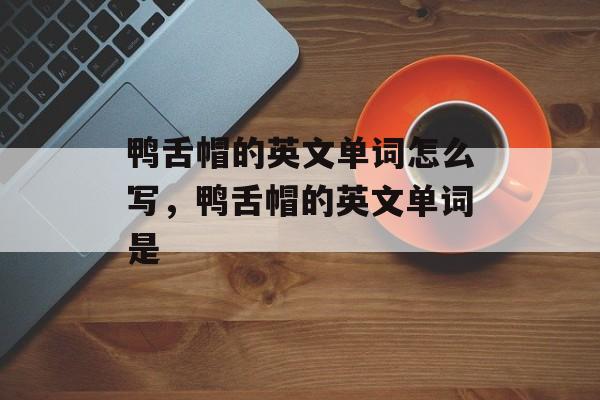
Yes, they are.是的,他们是。 / Yes, you’re right.是的,你说对了。
No, they aren’t.不,他们不是。
小学英语单词打卡(三上H)#头条抄书打卡# 第 *** 天
小学必背英语单词及例句
三年级上 Hh
hen 母鸡 It's a hen. 这是一只母鸡。
horse 马 There is a horse. 那里有一匹马。
hand 手 Clap yo *** hands. 拍拍你的手。
head 头 Nod yo *** head. 点点头。
同根词
headache 头痛 H *** e you got a headache? 你头痛吗?
hat 帽子 I got a new hat. 我有一顶新帽子。
happy 快乐的,幸福的 Happy birthday to you. 祝你生日快乐。
hard 难的,困难的 It's a hard question. 很难回答的问题。
here 这,这里 Come here. 到这来。
hospital 医院 It's a pet hospital. 这是一家宠物医院。
high jump 跳高 Amy is going to do high jump. 艾米要参加跳高。
how 如何,怎样 How are you? 你好吗?
wig,作名词时有假发的意思。fake/false hair一般多指局部的“假发片”,而wig则多指像帽子一样的“假发套”。言归正传,bigwig是什么意思呢?大号假发吗?
先来看bigwig的英文解释:
- an important person, especially in a particular sphere.
- 重要人物,尤指在某一特定领域的重要人物。
- a person who has an important or powerful position
- 有重要地位或权力的人
- an important or influential person; someone of a high status
- 重要的或有影响力的人;地位高的人
例句:
- We were invited to a lunch with local bigwigs.
- 我们被邀请与当地的大人物共进午餐。
bigwig一词起源于17世纪,当时正处于戴假发的热潮。剃光头、戴假发成了一种时尚。但是, *** 这些假发的头发既稀有又昂贵。头发是按股 *** 的,下层阶级戴着只有几股头发组成的假发是很常见的,而富人能够购买由数千缕头发组成的大型假发,很快“bigwig”这个词就与非常富有的人联系在一起。随着高顶礼帽的出现,这种时尚很快就消失了,但在英国法庭上看到的大型仪式中,这种时尚依然存在。
*** TVB的电视剧中,常常都能看到律师和法官在法庭上统一带上白色假发套。 *** 曾长期作为英国的殖民地,司法 *** 也沿袭英国特色,出庭戴头套根本上遵循的是英国 *** 。
BBC有一期讲到了Bigwig这个词:
- Jiaying
- 大家好,欢迎收听 BBC英语教学的 “地道英语” 节目,我是佳莹。
- Neil
- … and hello, I’m Neil.
- Jiaying
- 哎,Neil?你为什么戴了一顶这么大的假发?
- Neil
- Don’t you like it?
- Jiaying
- Well, it’s certainly big!
- Neil
- Thanks! I’m wearing it because you said we were talking about the word ‘bigwig’.
- Jiaying
- A big wig? No, not that kind of wig, Neil! I’m talking about an important and powerful person – a bigwig.
- Neil
- Oh, silly me!
- Jiaying
- 名词 “bigwig” 指的是 “重要的人物,大人物”。
- Neil
- So, Jiaying, don’t I look important and powerful in this wig?
- Jiaying
- No – you just look silly. Let’s hear some examples of ‘bigwig’…
- Examples
- We’ve got some bigwigs in the office today so we’re all on best beh *** io *** .
- My dad is a bigwig in the company, so he says he’ll *** me get an internship.
- A local bigwig has given her support for building a by-pass around the town.
- Jiaying
- 这里是 BBC英语教学的 “地道英语” 节目。刚才,我们介绍了名词 “bigwig” 的意思,它指的是 “大人物”。So, Neil, do you know any bigwigs?
- Neil
- Err no, unless you think I’m a bigwig when I wear this big wig?
- Jiaying
- It’s certainly given you a big head. But no, I’m afraid you are a little wig! But a CEO of a company, an industry giant or the *** yor of a town might be considered a bigwig.
- Neil
- Do they wear wigs too?
- Jiaying
- No, Neil! But the word comes from the 1700s when English men of authority wore wigs and those in higher power wore larger wigs.
- Neil
- Oh, right – I’m off then.
- Jiaying
- 哎,你去哪儿呀?
- Neil
- To get a bigger wig – *** ybe I’ll be more important, then!
- Jiaying
- Hmm, I don’t think so. Bye.
- Neil
- Bye.
“大人物”用英语怎么说呢?
简单一点的表达像important person,great *** n,VIP
除了Bigwig这个词,还可以这么表达:
- Big shot
- Big cheese
- Big bug
- Big wheel
往期推荐:
Yo *** are my lobster:你是我的更爱
“这不是我的菜”用英语怎么表达?
stand up to是什么意思?
good egg和bad egg分别是什么意思呢?
up to this point是什么意思呢?


